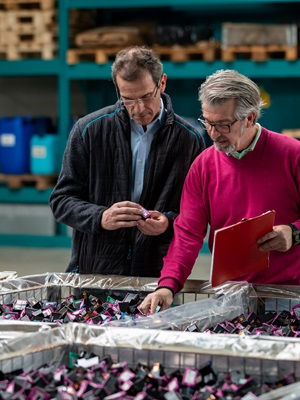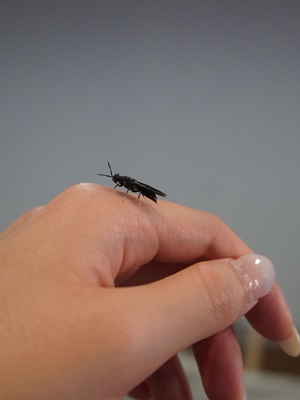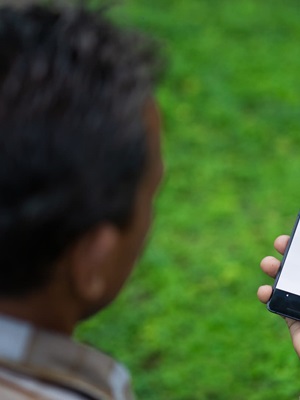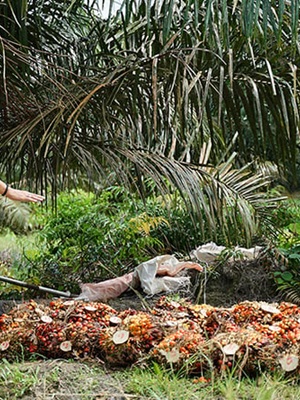66 million years ago, a meteor plunged into Earth, triggering the mass extinction of the dinosaurs. It was a force of unfathomable destruction—sudden, unstoppable, and indifferent to the life it erased. In an unsettling parallel, this mentality is mirrored in many of humanity’s actions, forcing us to question: are we our own meteors, wiping ourselves out with our destructive footsteps? What if the next extinction-level event walks on two legs and types at 70 words per minute?
We like to believe destruction is always external: a volcano explosion or a flash flood that wreaks havoc on both the environment and population. But upon further investigation, the increasing number of such tragedies have the same root: anthropological factors. Paul Crutzen argues our ushering in of the Anthropocene, a novel geological epoch distinguished by the pervasive influence of human activity on Earth. This period is characterised mainly by substantial alterations to the planet's intrinsic systems, encompassing climate, biodiversity, geological formations, and atmospheric composition, all predominantly orchestrated by anthropogenic forces.
The scale of that influence is staggering. Species today are going extinct at a rate 1,000 times the natural background. By the end of this century, sea levels may rise by up to 86 cm. We’ve already breached six of the nine critical “planetary boundaries”—the ecological thresholds that keep Earth stable. Of these nine limits, humans have blown past six: climate change, biosphere integrity, freshwater availability, land-system change, nutrient loading, and novel entities like microplastics and synthetic chemicals. Only ocean acidification, air pollution, and ozone depletion remain within safe limits—for now.
![unnamed[1]](/images/digitalhublibraries/article-cover-images/unnamed-1.png?sfvrsn=f47084cd_2)
A diagram from the study shows some of the factors involved in evaluating each boundary. Only three of the nine boundaries remain in the green, safe operating zone. (Source: Richardson et al. 2023)
This is not a slow unraveling of ecosystems—it is an acceleration. For the first time in Earth's history, a single species is accelerating natural processes and acting as a geological force. Unless we alter our course, we will end up playing the same role as the meteor did, with one key difference: we had a choice.
Unlike the meteor’s almost cruel impartiality towards destruction, humanity has the double-edged sword of foresight: we can analyze the past, predict future consequences, and alter our actions accordingly but this also implies ethical responsibility. This isn't just about mitigating damage; it's about reimagining our relationship with the planet and fostering a symbiotic existence.
The first step to this is to address shifting economic paradigms. Our current model, based on infinite growth, is unsustainable. We must transition to circular economies, prioritizing resource efficiency, waste reduction, and regenerative practices. This means aggressive investment in renewables (solar, wind, geothermal), phasing out fossil fuels, and modernizing grids. Sustainable agriculture (permaculture, agroforestry, vertical farming) can reduce environmental impact and ensure food security. Individually, responsible consumption—mindful purchasing, repairing, and sharing—can reduce waste. This requires a global commitment to designing products for longevity, repair, and recyclability, closing material loops, and minimising ecological footprints.
Agricultural reform is crucial. Agroecology, permaculture, and vertical farming present viable avenues for achieving food security without exacerbating soil depletion or deforestation. Costa Rica, for instance, successfully reversed deforestation trends and presently operates on 98% renewable energy. These achievements demonstrate that political resolve and systemic restructuring can propel societies toward sustainability.
Education is also pivotal. Fostering ecological literacy from a young age cultivates understanding and respect for natural systems, instilling environmental responsibility. Curricula should integrate environmental science, ethics, and solutions. Beyond formal education, public awareness campaigns, community initiatives, and accessible scientific communication are essential to inform and mobilise a broader population, fostering collective understanding of our interconnectedness with nature.
To be human in the 21st century is to live in a paradox: we’re both destroyers and stewards, both the threat and the solution. Our hands dig the mines and plant the trees. Our cities generate smog and innovation. We invent both the poisons and the antidotes.
Ultimately, preventing humanity from becoming its own meteor requires a profound shift in mindset. It demands that we move beyond short-term gains and embrace a long-term vision for planetary well-being. We must re-evaluate societal values, shifting from consumerism to well-being, community, and ecological harmony. We are still human, capable of change, but time is running out to decide our impact.
So the question isn’t just “Are we the meteor this time?”
It’s also: Are we willing to be something else?
REFERANCES
1) Paul, J., & Crutzen. (2006). THE ANTHROPOCENE: THE CURRENT HUMAN-DOMINATED GEOLOGICAL ERA. Acta, 18.
2) Carruthers, J. (2019). The Anthropocene. South African Journal of Science, 115(7/8).
3) CONSERVATION STEWARDSHIP PROGRAM NOVEMBER 2020 EDITION. (n.d.).
Posted 04/09/2025

















